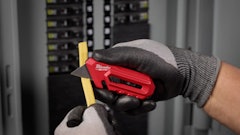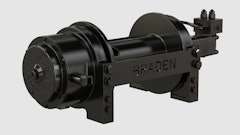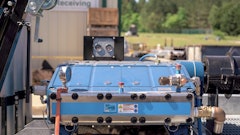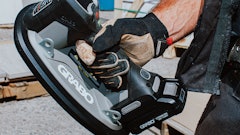
Business intelligence is an industry buzz word worth defining and understanding. To shed some light on what it means to equipment rental, we talked with Matt Hopp, general manager of InTempo Software, supplier of both InTempo Core and InTempo Enterprise software systems.
Rental: For those who might not be familiar, what exactly is business intelligence, otherwise known as BI?
Matt Hopp, general manager, InTempo Software: Business intelligence is all about turning information into action. Put simply, BI empowers you to analyze and understand your data, align your team around the metrics that matter most, and make decisions that help grow your business.
Rental: What are the primary metrics rental businesses are gathering data for?
Hopp: Common metrics center on time/dollar utilization, ROI, and equipment lifecycle (purchasing and disposal of assets). Rental companies are by nature capital-intensive. If you can squeeze even minor gains in efficiencies across the board, from rental coordinators to sales reps to mechanics to dispatchers, the impact can be significant. One of our former customers, now an InTempo employee, created dashboards for his rental company that saved people from having to run around the store throughout the day to share critical information. This time savings alone enabled the organization to run lean yet stay incredibly efficient. If you are considering purchasing a new reporting tool, stepping back and taking the time to quantify the impact of, say, a 10% gain in efficiency, is key. This way you can compare the cost of the reporting tool to the potential value it can provide.
Rental: How is the data gathered and what does this process “look like” to rental companies?
Hopp: At InTempo, we offer tools to gather data using different methods. A data cube gathers information on a nightly basis. This warehousing process makes data easy to slice and dice and is useful for long-term trend analysis, but is less ideal if you’re looking to make decisions in the moment, as many independent rental businesses are. That’s why our system also provides the real-time data our customers need to make instantaneous decisions, which in turn helps them get a customer or piece of equipment in and out the door in little time as possible. One of the tools we offer as part of our reporting solution is live Excel, which eliminates issues arising from outdated reports because the information is always current.
Rental: Do companies need to hire a professional for the analytics or are there alternatives?
Hopp: Your hiring needs depend on what your goals are. If your goal is to create a way to access and analyze data on a day-to-day basis, but the framework is not constantly changing, you likely do not need a dedicated full-time employee. For example, if you only need a set of dashboards built, you may be able to hire a consultant or work with your rental software provider for one-time setup. On the other hand, if you have a hands-on, metrics-oriented CEO, you will likely need somebody who understands your database and business environment, and who can get the data out of your system and turn it into actionable information.
Rental: How can this intelligence be used by rental companies for maximum effect?
Hopp: A statistic from the consulting company McKinsey shows that companies using analytics have a 126% profit improvement over competitors. So, gleaning insights from the mountains of information your system collects can have a transformative effect on your bottom line. Once again, it’s all about being able to squeeze efficiencies throughout every department at every point during the rental process. Looking outside the rental industry, Southwest Airlines provides a good case study. Through a combination of a highly efficient boarding process, optimal route planning, and minimal equipment downtime, each Southwest plane gets two more hours of flying time per day than other major airlines. It’s like getting one airplane in five for free. The idea is similar with rental businesses - it’s all about squeezing out efficiencies wherever they can be found, because small gains add up to big wins. Business intelligence reveals the path of how you get there. Still, it’s important to avoid going overboard and creating reports and dashboards just for the sake of having them. Focus on metrics and information that is not just going to inform, but change behavior and impact decision-making.
Rental: Can smaller companies benefit from BI, and if so, how would it work for them?
Hopp: Smaller companies have much to gain from using and applying business intelligence in the right ways. If, by enabling your rental coordinators to save a few minutes writing each contract, your service people to turn equipment around a few hours faster, and your credit department to make instant decisions, you may well be able to hire one less employee. Now you can take that $70,000 and invest in on new equipment where it will return the most profit. Another huge area of impact with BI is sales. InTempo offers a mobile app that puts crucial information such as equipment rates and availability and rental history into the hands of salespeople, wherever they are. This allows them to close deals on the move, eliminating phone calls to the office and other tedious tasks. However, with small businesses especially, you want to avoid “analysis paralysis” where there’s too much data to take meaningful action. One way to do this is to create exception reports for management. Let’s say you have a cat-class where utilization should always fall between 70-80%. You should be able to create reports where management is only notified if utilization falls outside that sweet spot. Often, less is more.
Rental: What role do you see BI playing in the future of rental?
Hopp: Mobile is the way of both the present and the future with its ability to bring data out of the office and get it into the hands of people as far down in the organization as possible. Although we often associate business intelligence with CEOs or managers, it’s frequently the employees making day-to-day, minute-by-minute decisions that can benefit most. For example, say a customer who usually has 20 units a month on a jobsite now only has 7. If a salesperson can get that data in their hands, they can reach out to that customer to understand the downward trend. This circles back to the importance of BI being actionable and a meaningful driver of change for the business - not just data for the sake of it.





















